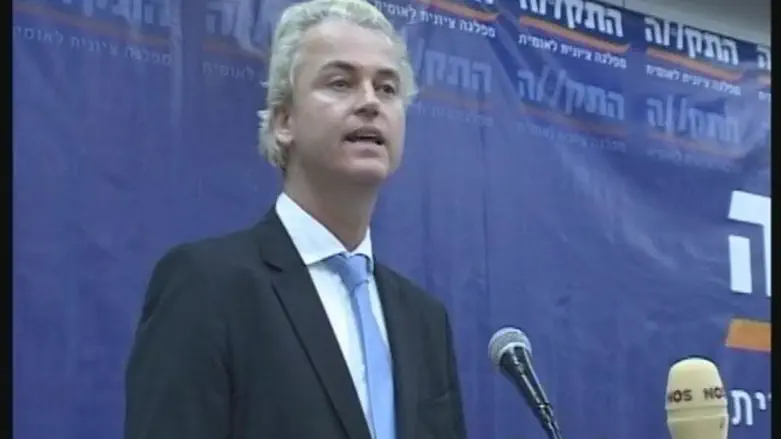
The Netherlands goes to the polls today. Can conservative candidate Geert Wilders do the unthinkable and rake in a majority of votes? The question conspicuously arises whether the leader's branding as "extreme Right" will not prevent him from producing a coalition and forming a government.
Wilders leads the Party for Freedom (PVV), which is challenging current Prime Minister Mark Rutte and his Party for Freedom and Democracy (VVD). In last night's pre-election debate, Wilders told the Dutch PM: "You, Mr Rutte, are not Prime Minister of the Netherlands, but Prime Minister of foreigners."
If polls are to be believed, recent weeks have seen a moderation of Wilder's popularity increase, but it still stands much higher than it was at the beginning of Wilder's political career. Various polls have Wilders at third or fifth place (after VVD and Sybrand Buma's Christian Democratic Appeal (CDA)), and the standard warnings of a falling Euro should Wilders win have been duly released to the press. Whether these polls are accurate indicators of the public mood or unsubtle mechanisms to manipulate it will soon become known, but it is clear that with such close proximity to countries with their own anti-Muslim "awakening" movements, namely Germany and France, and Brexit England, and a Muslim problem that won't go away by itself, Wilders appears poised to inherit the wave of the future.
Wilders is receiving substantial tailwind from the current crisis with Turkey. His views on Islam and exposing it as a terror religion attracts widespread positive resonance in the Netherlands and many of those who do not hold any of Wilder's positions nevertheless see his attitude toward Muslims and Islam as legitimate and as the only one that will guard the Netherlands' character against the waves of invaders befalling it.
Wilders sees Israel as a source of inspiration in the fight against terror. In his youth the man lived for two years on an Israeli Kibbutz, he sees Israel as an island of sanity and democracy in a sea of Islamist terrorists and he seeks to emulate Israel's responses to its struggles. He mentions in his speeches that wherever the West has retreated before Islam human rights have been lost and terror has prevailed.
Wilders seeks to close the mosques in his country and demands to outlaw the Koran, which, argues, is even a worse book than Hitler's Mein Kampf, as he elucidates the comparisons between Nazism and Islam.
These and other positions have led to serious threats on Wilder's life and in recent years he has been constantly protected by a state-funded group of security guards.
In Dutch politics the right-leaning voices have been getting stronger, but it is doubtful whether these more establishment politicians concerned with respectability will deem it proper to connect with Wilders to establish a unity government if he wins. The future is beginning no longer to resemble the past, however, and at present, hope for a rollback of Islamic expansionism in the Netherlands is high.